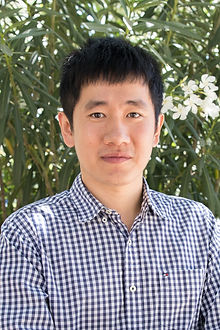
Control Seminar
Fast and Accurate Battery Biometrics: How to Get Them through Design of Testing?
This event is free and open to the publicAdd to Google Calendar

ABSTRACT: Testing of a Lithium ion battery to determine its health and remaining useful life is critical for informing actions, such as recycling and repurposing, to extend its life cycle and enable a circular battery economy. Current testing practice mostly relies on simple empirical input excitations, such as constant charge/discharge and pulse current, which takes a significant amount of time and drives up the cost of testing. We are interested in testing design to achieve the optimal balance of testing time and accuracy by combining control, estimation, and machine learning. We first investigate the design criteria that are directly related to the accuracy of estimating battery health and are feasible for the optimization of long input sequence. We then explore both model-based and reinforcement learning approaches to solve the formulated input optimization problem. We will demonstrate a reinforcement-learning trained input control policy that could achieve fast, robust, and accurate testing, when informed by real-time state estimation.
BIO: Xinfan Lin is currently an Assistant Professor with the Department of Mechanical and Aerospace Engineering at the University of California, Davis, since 2017. He received his B.S. and M.S. degrees in Automotive Engineering from Tsinghua University, Beijing, China in 2007 and 2009, and Ph.D. in Mechanical Engineering from University of Michigan in 2014. Prior to his appointment at UC Davis, he was a research engineer at the Ford Motor Company from 2014 to 2016. His research interests include dynamic systems modeling, estimation, and control, data analytics, and machine learning with applications in energy and aerospace systems. He is a recipient of the NSF CAREER Award (2021), LG Global Innovation Award (2019), and LG Battery Innovation Award (2017). His research has been funded by NSF, Office of Naval Research (ONR), NASA, and industry. He has also been serving as the Publicity Chair and Award Chair of the ASME Energy Systems Technical Committee (ESTC) since 2018.
***Event will take place via Zoom. Zoom link and password will be distributed to the Controls Group e-mail list-serv. To join this list-serv, please send an (empty) email message to [email protected] with the word “subscribe” in the subject line. Zoom information is also available upon request to Katherine Godwin ([email protected]).
 MENU
MENU 
